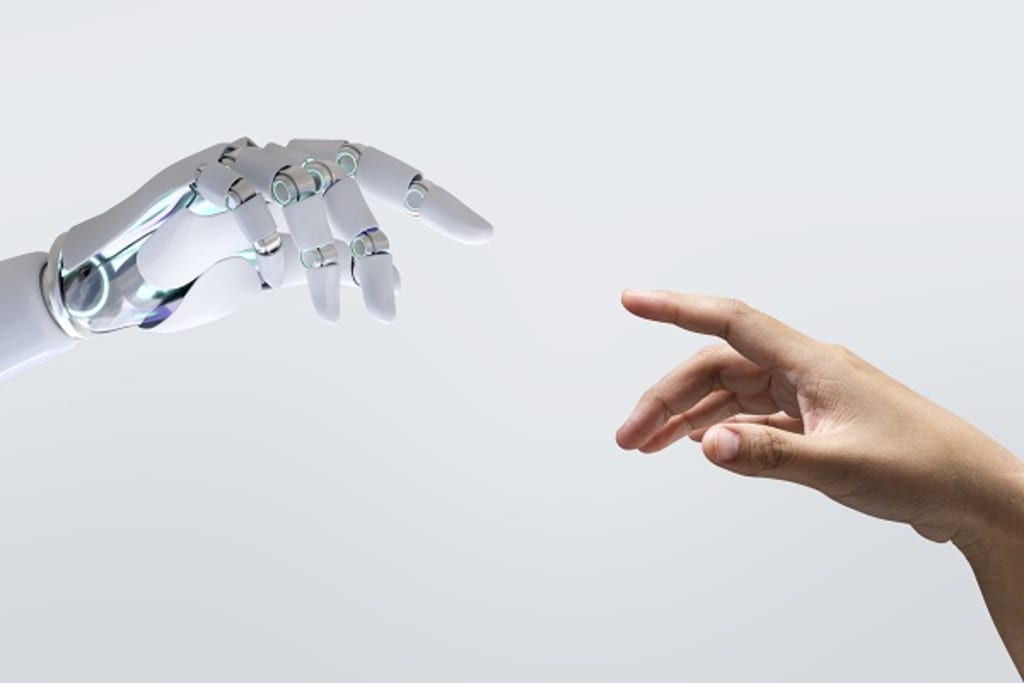
AI is a brand-new field that is now known as "weak AI" (due to limitations). However, developing strong AI is what will shape artistic intelligence in the coming years. AI can presently only outperform humans in a small range of specific talents, although it is anticipated that in the long term, AI will surely outperform humans in all cognitive tasks. Without a doubt, it will have both positive and bad effects. The experts who have studied the best AI Courses/AI Training Courses in the best AI Training Institute will be able to develop superior AI tools. They also would have artificial intelligence certification.
AI development
It's crucial to understand what is the meaning of AI and where it stands right now before venturing into the future of AI. The goal of computer science's "AI" branch is to develop smart robots that can mimic human behavior.
Based on my capabilities, AI is divided into three groups.
- It is skillful in effectively completing specific functions, according to Narrow AI. It is currently in a limited stage.
- Generative Intelligence, sometimes known as GI, is the name given to machines that can imitate an individual’s intellect.
- Supra-I: The term supra-I describes a conscious self that is outstanding to people in terms of its cognitive capabilities. It is a stage at which intelligent machines are capable of performing any work which a human is capable of doing.
- At the moment, AI is categorized as a "Limited AI" or "Feeble AI," capable of only specialized tasks. Among its examples are self-driving cars, Speech identification, as well as other technological advancements.
How Did AI Appear Similar to the coming years a decade ago?
It has inspired both fear and excitement for decades, even before the phrase was coined, as people have thought about creating machines in their likeness. Most of us were oblivious to the truth that AI had long since realized—that smart artifacts must be human-like objects. While achievements in surprising human competence in anthropogenic sources like go, translation, and chess make headlines, AI has been a part of the industrial armamentarium since at least the 1980s.
Production-rule or "expert" solutions then became the standard technology for checking the integrity of the audit board and detecting credit card fraud. Similar to this, ML methods like genetic algorithms have long been utilized for challenging computing problems like scheduling, and neural networks have been used not just to model and understand human learning but also for fundamental industrial control and monitoring.
Machine learning transformed mostly in the nineties thanks to probabilistic and Bayesian methods, which opened the door for some of the most popular ICT techniques currently being used, like searching through enormous data science course sets. This search capability included the ability to perform semantic analysis of raw text, enabling users of the Internet to eventually locate the content they're looking for among the billions of Web pages by simply typing a few words.
Artificial intelligence's future
AI practically has applications in every sector, thus we'll talk about AI's destiny in each of the significant facets.
Medical Field:
Health Care Companies India is the second-most populous nation in terms of population after Japan, with 17.7 percent of the global population. All of the nation's citizens lack access to healthcare facilities. It is caused by a shortage of qualified doctors, inadequate infrastructure, and other factors. Some people are unable to access doctors' offices or hospitals. Artificial Intelligence courses can diagnose illnesses based on signs even if you don't visit a doctor by reading data from a fitness tracker or a person's medical history, analyzing the pattern, and prescribing the most appropriate medication, which can be quickly purchased using cell phones.
AI in Learning Sector
Young people's educational attainment affects a country's growth. We can observe that numerous courses are now available on AI. AI will, however, change from traditional shopping in the long term. As machines and science have mostly substituted skilled laborers, manufacturing sectors no longer need them.
The learning sector can be extremely effective and customized to a person's character and skill. It enables stronger students to flourish and provides failing pupils with a greater chance to catch up. On the other hand, inadequate knowledge can have terrible repercussions while proper education can improve both individuals and countries.





Comments
Gajendra is not accepting comments at the moment
Want to show your support? Send them a one-off tip.